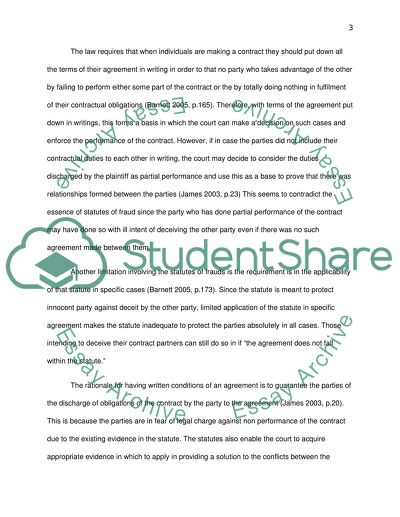Cite this document
(“The Presumption of Liberty Assignment Example | Topics and Well Written Essays - 2000 words - 2”, n.d.)
The Presumption of Liberty Assignment Example | Topics and Well Written Essays - 2000 words - 2. Retrieved from https://studentshare.org/law/1621312-the-statute-of-frauds-business-law
The Presumption of Liberty Assignment Example | Topics and Well Written Essays - 2000 words - 2. Retrieved from https://studentshare.org/law/1621312-the-statute-of-frauds-business-law
(The Presumption of Liberty Assignment Example | Topics and Well Written Essays - 2000 Words - 2)
The Presumption of Liberty Assignment Example | Topics and Well Written Essays - 2000 Words - 2. https://studentshare.org/law/1621312-the-statute-of-frauds-business-law.
The Presumption of Liberty Assignment Example | Topics and Well Written Essays - 2000 Words - 2. https://studentshare.org/law/1621312-the-statute-of-frauds-business-law.
“The Presumption of Liberty Assignment Example | Topics and Well Written Essays - 2000 Words - 2”, n.d. https://studentshare.org/law/1621312-the-statute-of-frauds-business-law.


